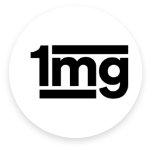In today’s tech-savvy world, period and ovulation tracker apps have become digital confidants for millions of women. These apps promise to predict your next period, track ovulation windows, and offer insights into your overall reproductive health. But how accurate are they? How much can we rely on these trackers? Let’s find out!
Can You Trust Your Period and Ovulation Tracker App?
You can find varied types of period and ovulation tracking apps, with some using a large amount of personal data and others using biometric data to make predictions. While both types of period and ovulation tracker apps are convenient and empowering, their accuracy can vary based on several factors.
Let’s explore some points that could help you better understand what influences their reliability:
- Data Quality: The more personalised data you feed into the app, the more accurate the period tracker app provides insights. The period tracker apps are designed to improve over time by learning from your unique cycle patterns.
- Cycle Variability: If your menstrual cycle fluctuates frequently, some period and ovulation tracking apps might struggle to predict periods or ovulation accurately. However, the period tracker can adapt to your irregular cycles by providing more tailored details.
- Algorithm Limitations: Almost every tracker app relies on algorithms that use past cycle data to predict future cycles. These algorithms work well for some but can be less accurate for women with irregular cycles, PCOS, or hormonal imbalances.
- Lifestyle Factors: Stress, diet, sleep, and exercise can also impact your cycle, which can further affect the app predictions.
Is Ovulation Tracking Reliable?
When it comes to ovulation, tracking apps may give you a broad window, typically 4-6 days, when you are most fertile and, thus, more likely to conceive. While these predictions can help in family planning, they are just estimates. For more precise tracking, you should consider pairing your ovulation tracker app with other methods like basal body temperature tracking or ovulation predictor kits.
Concluding Thoughts: The Verdict
While period and ovulation tracker apps are helpful tools, providing valuable insights; they might not be 100% accurate. Their accuracy can vary depending on your body temperature, lifestyle, hormone levels, mood, menstrual symptoms, energy levels, and the quality of the app itself.
For those looking for a dependable solution, the SOFY menstrual tracker provides an enhanced experience by combining modern technology with user-friendly features. Other than that, it will be beneficial to use the period and ovulation tracker app as a helpful guide; you should also listen to your body.
FAQ’s
2. How accurate are these apps in predicting periods?
While not perfect, most apps offer reasonable accuracy based on regular data input. For people with regular cycles, predictions are more reliable. However, sudden stress, diet, or hormonal changes can affect accuracy, especially for irregular cycles.
3. Can ovulation tracking apps help with pregnancy planning?
Yes, ovulation tracking apps can help identify fertile windows, which may assist those trying to conceive. However, the accuracy may vary. It’s best to use them as a helpful guide, not a guaranteed method for conception or birth control.
4. Why do some apps show wrong period dates?
Apps rely on the data users provide. If the cycle length changes or if data is missing, predictions may be off. Irregular cycles or health conditions can also impact the app’s ability to predict accurately over time.
5. Are free tracker apps as reliable as paid ones?
Free apps can offer basic tracking and decent predictions. Paid versions often include more features like symptom analysis, mood tracking, or reminders. The reliability mainly depends on the algorithm and how consistently you log your information.
6. What features should I look for in a good tracker app?
Look for features like customizable cycle length, ovulation prediction, reminders, symptom logging, and data privacy. A user-friendly interface and the ability to export your data can also make the experience more useful and personalized.
7. Can tracker apps detect health issues?
Apps can highlight unusual patterns like missed periods or irregular cycles, which may hint at underlying health issues. While they can’t diagnose problems, they can provide useful data to discuss with your doctor during check-ups.
8. Are tracker apps useful for teens?
Yes, they help teens understand their cycle better, build awareness, and reduce anxiety about periods. Many apps have simple interfaces suited for younger users and can help form a habit of self-awareness early on.
9. Do tracker apps protect user privacy?
Most trusted apps offer secure data storage, but it’s wise to check their privacy policy. Choose apps that do not sell your data to third parties and allow you to manage or delete your data when needed.
10. Should I rely only on an app to track my cycle?
Apps are a helpful tool but should not be your only source for managing reproductive health. They work best when paired with personal awareness, regular health check-ups, and listening to your body's signals.











